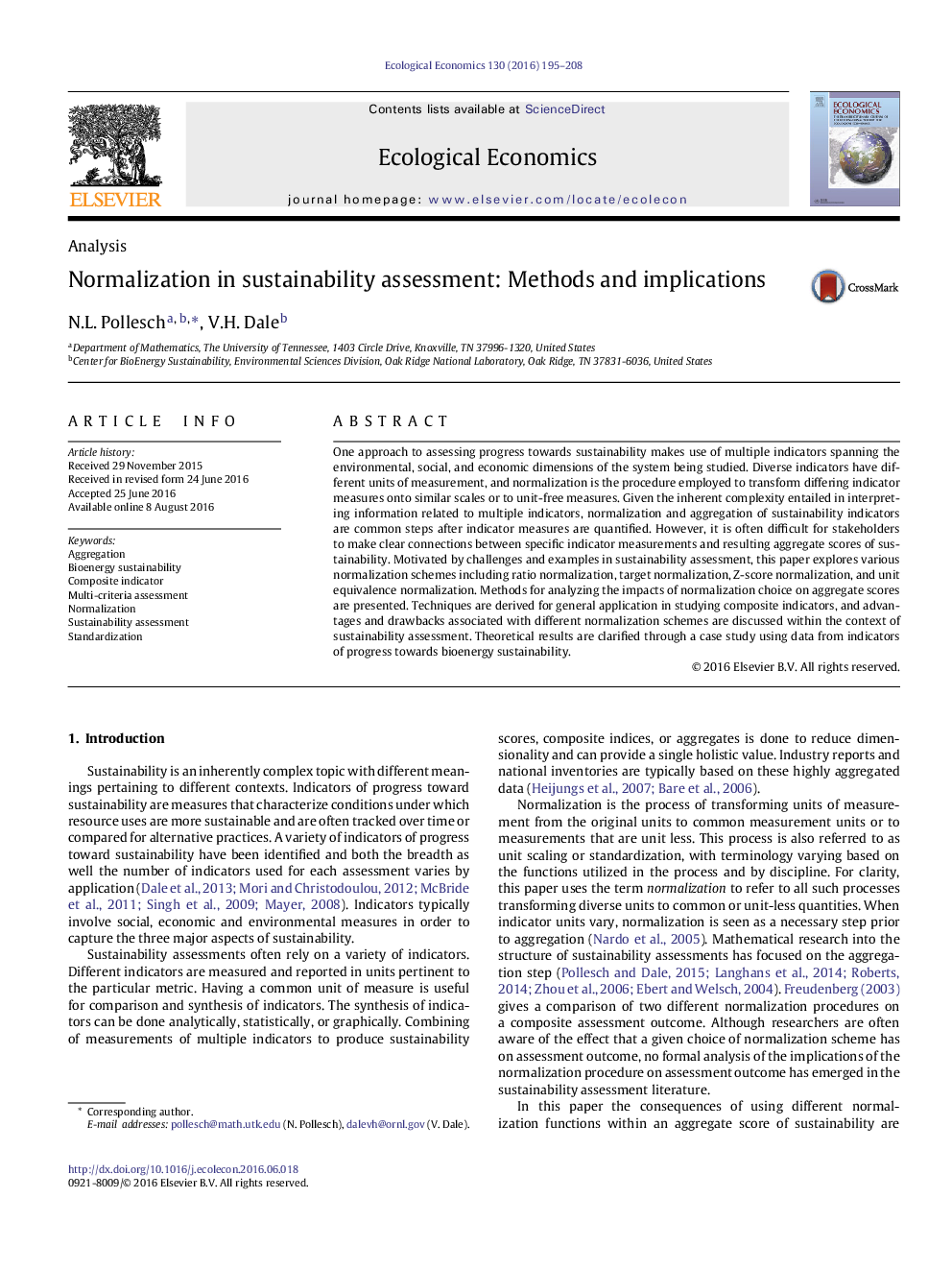| کد مقاله | کد نشریه | سال انتشار | مقاله انگلیسی | نسخه تمام متن |
|---|---|---|---|---|
| 5048965 | 1476349 | 2016 | 14 صفحه PDF | دانلود رایگان |
One approach to assessing progress towards sustainability makes use of multiple indicators spanning the environmental, social, and economic dimensions of the system being studied. Diverse indicators have different units of measurement, and normalization is the procedure employed to transform differing indicator measures onto similar scales or to unit-free measures. Given the inherent complexity entailed in interpreting information related to multiple indicators, normalization and aggregation of sustainability indicators are common steps after indicator measures are quantified. However, it is often difficult for stakeholders to make clear connections between specific indicator measurements and resulting aggregate scores of sustainability. Motivated by challenges and examples in sustainability assessment, this paper explores various normalization schemes including ratio normalization, target normalization, Z-score normalization, and unit equivalence normalization. Methods for analyzing the impacts of normalization choice on aggregate scores are presented. Techniques are derived for general application in studying composite indicators, and advantages and drawbacks associated with different normalization schemes are discussed within the context of sustainability assessment. Theoretical results are clarified through a case study using data from indicators of progress towards bioenergy sustainability.
Journal: Ecological Economics - Volume 130, October 2016, Pages 195–208
